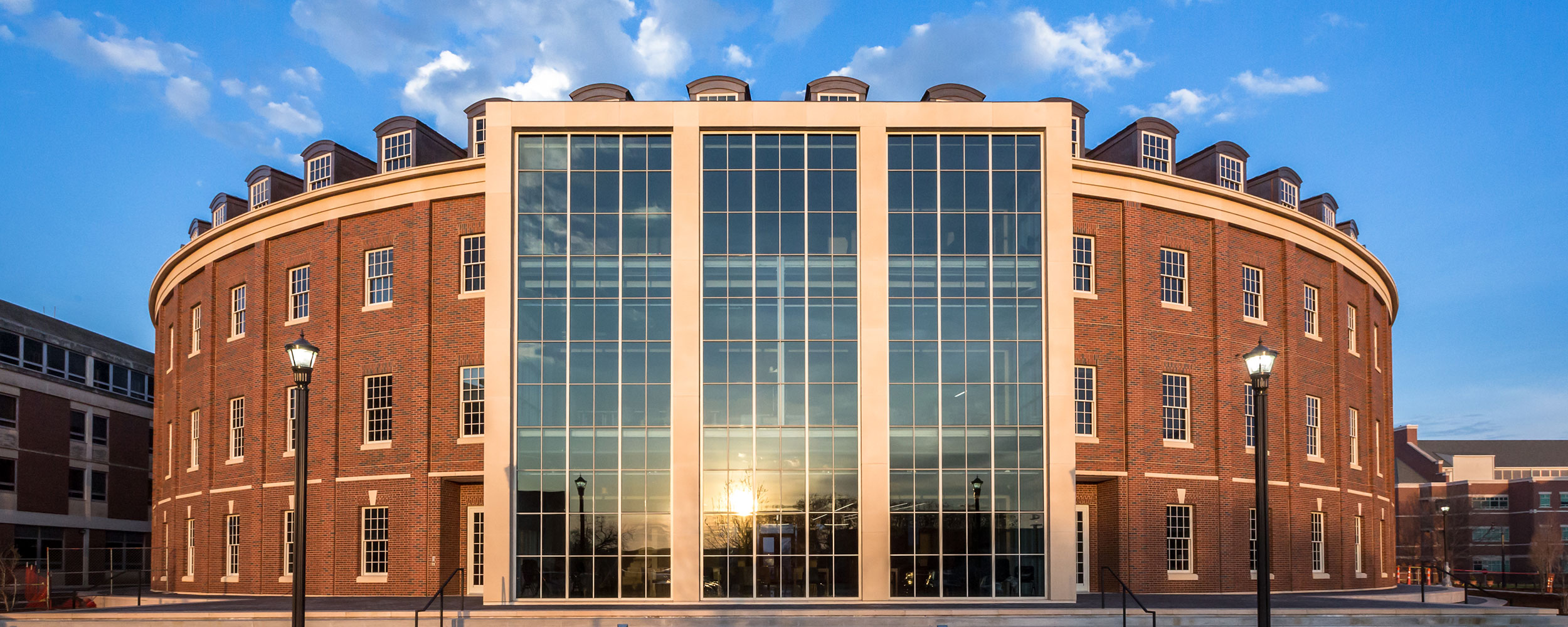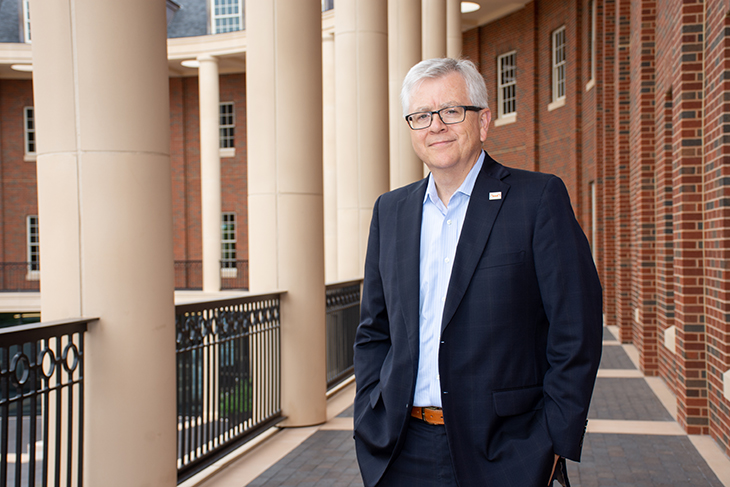
Spears comes up with ‘big ideas' to help adapt to change in the future
Tuesday, June 15, 2021
Media Contact: Terry Tush | Director, Marketing and Communications | 405-744-2703 | terry.tush@okstate.edu
When an organization continuously meets its goals while successfully navigating challenges large and small, what does it do for an encore? In a little more than a decade, the Spears School of Business has introduced a new core curriculum and opened a new building while successfully earning reaccreditation from the AACSB, the world’s top arbiter of business education.
“People started asking me, well, what’s next?” said Dr. Ken Eastman, dean of Spears Business. “Which, of course, my response was, isn’t that enough?”
Eastman’s actual response was to challenge school employees to come up with a significant project that Spears Business could implement: a big idea.
“I decided we needed think to think about what’s next,” Eastman said. “What are some of the things we could focus our resources and attention on over the next three to five years that our alumni and constituents would see just how committed and dedicated our faculty and staff are to the school and moving ahead?”

In December 2019, Eastman threw out a challenge in a regular monthly meeting with Spears faculty department heads and key staff. Every department and unit of the college was invited to come up with concepts for projects that the school could consider, but Eastman stressed that he wasn’t looking for just any ideas, he wanted big ideas.
“What can we do as a college that could make a significant difference not just to Spears, but to our students, alumni, to all of our constituents?” he asked.
At first, the biggest hurdle was getting people to think big enough.
“I actually had to cajole people to think bigger. I said, ‘Look, don’t worry about resources. We'll worry about that later,’” Eastman said.
Criteria were established for considering what a big idea should accomplish, including creating a common purpose or significant social impact and enhancing the reputation of Spears Business. By February 2020, the dean’s office had received 21 initial proposals that a committee of faculty, staff, students and alumni would consider. The list covered everything from providing professional development help to minimum-wage workers and the unemployed to Spears adopting “green” practices to reduce waste to helping small businesses in developing countries and marginalized communities reach larger markets to recruitment of nontraditional students.
“Within the initial proposals, there is a really nice cross-section of innovative ideas,” said Dr. William Paiva, chair of the Big Ideas Review Committee and executive director of the OSU Center for Health Systems Innovation.
The 19-member review committee’s first job was to reduce the initial list of ideas to seven finalists, who were asked to submit detailed, standardized proposals so the committee could evaluate them fairly.
“We had very specific criteria that we asked people to address in their final documents,” Paiva said. “There were three proposals that distinguished themselves from the other finalists.”
So, instead of Spears Business pursuing a single big idea, the initiative has approved the pursuit of three, each of which could have a large impact on the school, OSU and the greater community beyond campus.
The three Big Ideas:
The Center for Financial Health and Wellness
The proposal, submitted by Dr. Betty Simkins from the Department of Finance, recommends creating a center to address the lack of financial literacy in the United States, including among many college students who graduate with excessive student loan and credit card debt, and other Americans who are woefully inept at managing personal and family finances.
Objectives:
- Raise the level of financial literacy for Spears School of Business graduates and, more broadly, students across OSU.
- The goal is 100 percent of Spears Business graduates to become financially literate with a high percentage of OSU graduates also becoming financially literate if the center extends beyond Spears Business.
The Institute for Predictive Medicine
Prepared by Dr. Zhuqi Miao with the Center for Health Systems Innovation, the proposal calls for creating an institute to address an urgent need to find alternative innovations, delivery models and information technology solutions to improve health care outcomes while reducing cost. The plan calls for tackling the root problem in a disruptive way by transforming health care into an artificial intelligence-intensive industry.
Objectives:
- Expand OSU’s research capacity in data science and AI
- Further develop predictive medicine technologies
- Develop text mining technologies to process medical documents
- Data and analytic support for medical studies
- AI health worker invention and commercialization
- Workforce training in health data science and AI
The Spears Center for Social and Business Impact
The proposal, submitted by Drs. Miriam McGaugh and Tom Brown with the School of Marketing and International Business, will create a center to bring together departments within Spears Business for a coordinated effort to impact businesses and society by combining our research power with “data for good” efforts.
Objectives:
- Develop analytic data service center positioned within the SCSBI
- Assess the influence of Spears Center for Social and Business Impact
“The next step is I’ve asked the leaders of each initiative to come up with a five-year implementation plan that would include annual benchmarks,” Eastman said. “But also, what resources are they going to need along the way to make sure this is successful — people, money, technology?”
The dean said his job will be to help find those resources, both internal and external, including working with alumni and others with a passion for these ideas and a willingness to help pay for them. Eastman said he is already working with the OSU Foundation to identify potential donors to support any of the three main ideas.
Eastman said the Big Ideas initiatives are an important way for Spears Business to remain nimble in an era where higher education is being challenged to remain relevant and able to change to meet the needs of a changing society.
“The danger for any business school is to become complacent, so you have to always look for ways to be adaptable and innovative,” he said. “I think the hardest thing for colleges and universities to do is become adaptable.”
Story By: Jeff Joiner | Engage@Spears Magazine
